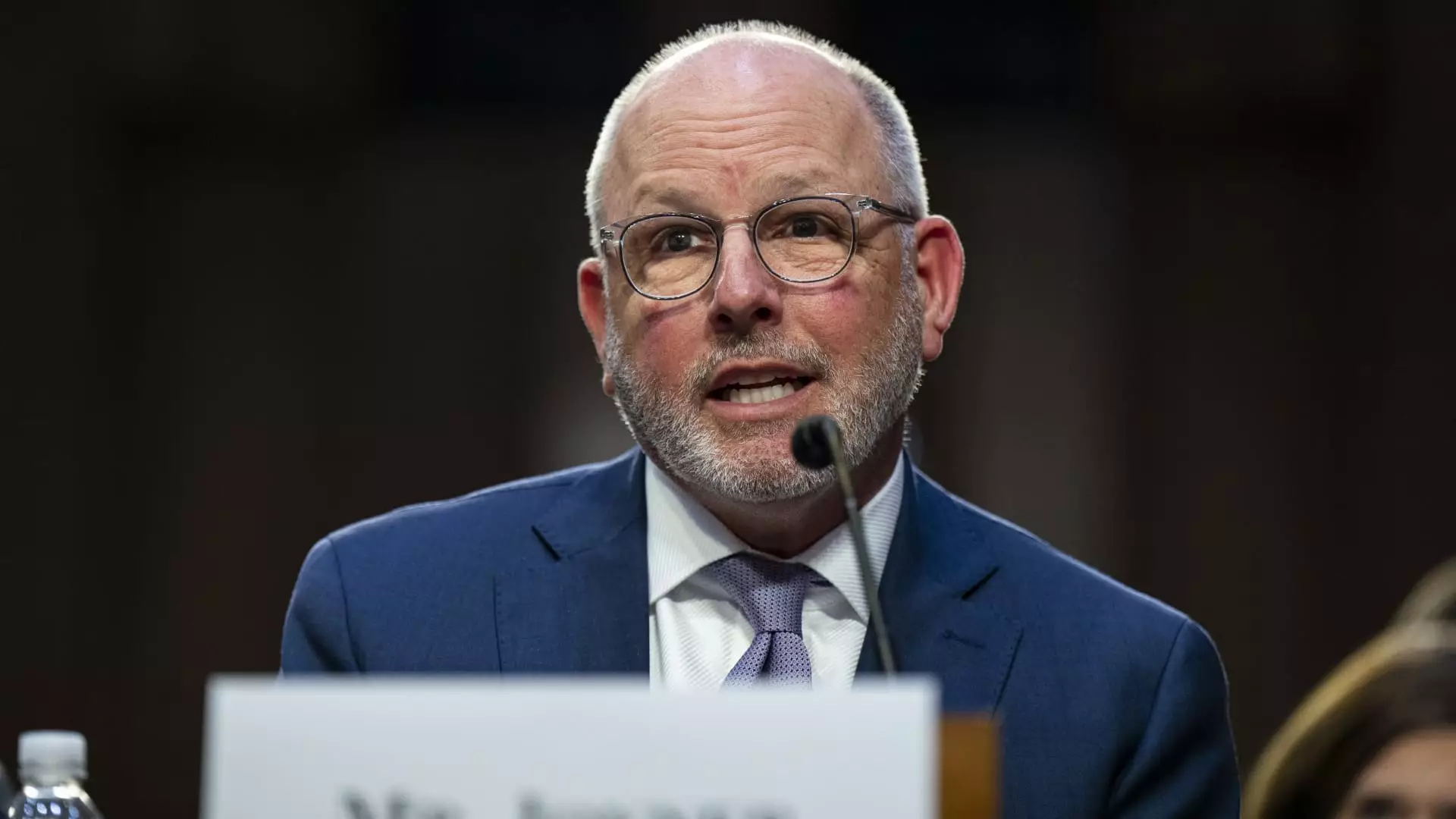David Joyner has taken the helm as CVS Health’s new CEO, succeeding Karen Lynch in a move that signals the company’s need for a strategic revitalization. With CVS shares plummeting nearly 20% this year and a slump of approximately 11% in pre-market trading following the announcement, the urgency for tactical adjustment within the company has never been more apparent. This leadership transition underscores a critical juncture as CVS grapples with multifaceted difficulties impacting its profitability and market standing.
CVS has been navigating treacherous waters predominantly due to escalating medical costs affecting its insurance division, Aetna. These pressures have been compounded by a retail pharmacy framework under siege from declining consumer expenditure and reimbursement challenges associated with prescription drugs. Just last month, CVS disclosed its decision to reduce profit expectations for the third consecutive quarter, indicating a climate of sustained financial distress. As a response to these challenges, the company also revealed intentions to implement cost-cutting measures aiming for a $2 billion reduction throughout the coming years.
The press release shared in conjunction with Joyner’s appointment emphasized a detrimental spike in anticipated medical costs, suggesting that stakeholders should recalibrate their expectations regarding CVS’s financial outlook. With adjusted earnings forecasted between $1.05 and $1.10 per share for the upcoming third quarter, investor confidence is likely to remain tepid, precisely due to these escalated expenses which are expected to surpass earlier estimates.
Joyner’s previous experience positions him uniquely for this role, having most recently overseen CVS’s pharmacy services division as president of Caremark, CVS’s expansive pharmacy benefit manager (PBM). His return to the company, following a retirement in 2019 and re-engagement last year, marks him as a seasoned veteran within CVS’s operational landscape. Drawing from a lengthy history at both Aetna and Caremark, Joyner is expected to leverage his deep understanding of CVS’s integrated business model to navigate current industry challenges.
“This opportunity presents itself because of my belief that I can substantially contribute to the company’s evolution and turnaround,” Joyner mentioned in a recent statement. The internal ethos appears to focus on actionable reforms, with Chairman Roger Farah emphasizing the new CEO’s capability to directly address the systemic issues facing CVS, enhancing operational efficiency and extracting unique value from their multifaceted offerings.
The appointment of Joyner comes at a time when CVS is under increased scrutiny from major stakeholders, particularly Glenview Capital, a significant investor pushing for transformative changes within the company. Reports indicate that CVS’s board has engaged strategic advisors to evaluate potential restructuring scenarios, including the division of its insurance and retail sectors. Nevertheless, following Joyner’s ascension, the company appears resolved to maintain its integrated structure.
The upcoming earnings report set for November 6 will be pivotal for CVS; it is eagerly anticipated by investors hoping for signs of stabilization and recovery. Nevertheless, the environment remains fraught with challenges stemming from regulatory hurdles and heightened scrutiny towards PBMs, which are likely to persist following the Federal Trade Commission’s legal actions against Caremark and its peers. Critics argue that such entities have employed strategies that inflate consumer costs, especially in vital areas like insulin pricing, thus complicating the operational landscape further for Joyner.
One of the immediate concerns for the new CEO will be contending with rising medical costs related to Medicare Advantage. With more seniors recently returning for postponed treatments, the demand on insurers is intensifying, complicating the cost management landscape. CVS has set ambitious targets aiming for significant margin improvements in this sector, estimating a beneficial uptick in its Medicare Advantage performance despite current pressures.
As Joyner steps into his new role, CVS Health’s future will hinge on the effectiveness of his leadership in facing these intricate challenges and realizing strategic goals. The upcoming quarterly review will crystallize the practical ramifications of his decisions and give stakeholders a clearer picture of the road ahead for CVS Health. The eyes of analysts and investors alike will be fixated on how Joyner not only navigates existing hurdles but also positions CVS Health for a more resilient and profitable future.

